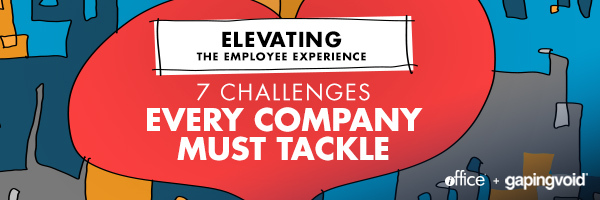Why Strong Leaders Need Emotional Intelligence (And How To Develop It)


Whether you’re the type of person who wears your feelings on your sleeve or you bottle them up until they explode, your ability to manage emotions impacts your ability to lead. Many argue emotional intelligence (EI) is even more important than IQ. Some researchers estimate EI accounts for as much as 75 percent of a person’s ability to succeed.
 This is why so many managers abide by the old saying, “Hire for personality; train for skill.”
This is why so many managers abide by the old saying, “Hire for personality; train for skill.”
It’s also why more organizations are implementing training programs specifically to address this.
You’ve probably heard this term tossed around at leadership development seminars, or strewn across the covers of books in the self-help section. But what does it really mean? How is it measured? And is there anything you can do to improve EI.
Here’s what you need to know.
What is Emotional Intelligence?
Emotional intelligence is the ability to identify and manage your emotions, as well as the ability to recognize and influence the emotions of others. It’s also defined as the balance between the emotional and rational parts of your brain.
EI is composed of four core skills under two primary competencies, according to Travis Bradberry, co-founder of TalentSmart and author of bestselling book “Emotional Intelligence 2.0”.
1. Personal Competence
a. Self Awareness: Recognizing your emotions as they build.
b. Self Management: Using awareness of your emotions to control your behavior.
2. Social Competence
a. Social Awareness: Perceiving others’ emotions.
b. Relationship Management: Using awareness of others’ emotions to manage interactions.
As a business leader, emotional intelligence can help you keep your emotions in check and identify when your team members are frustrated, burnt out, dissatisfied, or feeling other emotions that could impact their work.
And the higher your EI, the more likely you are to be successful in the workplace. In his research, Bradberry found high emotional intelligence among 90 percent of top performers, but only 20 percent of bottom performers.
How Do You Determine Emotional Intelligence?
While the process for measuring a person’s IQ is relatively straightforward, developing an accurate assessment of someone’s emotional quotient (EQ) is a bit trickier and generally requires an honest self-evaluation.
For example, Bradberry’s test asks questions about things like:
● Whether or not you hold grudges
● How you handle making mistakes
● How easily you become stressed
The more honest you are when answering these questions, the more accurately your score will reflect your true EQ.
How Can You Improve Your EQ?

Unlike your IQ — which is fixed from an early age and remains largely unchanged for the rest of your life — EQ is malleable. Having a low EQ doesn’t doom you to poor emotional awareness and mishandling of interpersonal relationships at work. In fact, a low EQ score helps you identify which areas you need to improve.
For example, if you find you score low on social awareness, work on reading between the lines — taking people’s body language, facial expressions, and other non-verbal emotional indicators into account. With practice, you’ll improve in this area. And if you re-test yourself later, you will likely find your score has improved.
If you struggle with managing stress at work, write down the situations that most often cause you stress and how you respond to them. Identify better ways to cope, such as taking a few moments to remove yourself from the stressful situation, talking with a coworker or peer and establishing clear boundaries, such as not checking your email after a certain time of day.
Whether you’re leading a team, hoping to advance to a leadership position, or simply looking to excel in business and in life, calculating and improving your emotional intelligence is a great place to start.
Editor’s Note: This post was previously published on Inc.com and has been republished here with permission.
